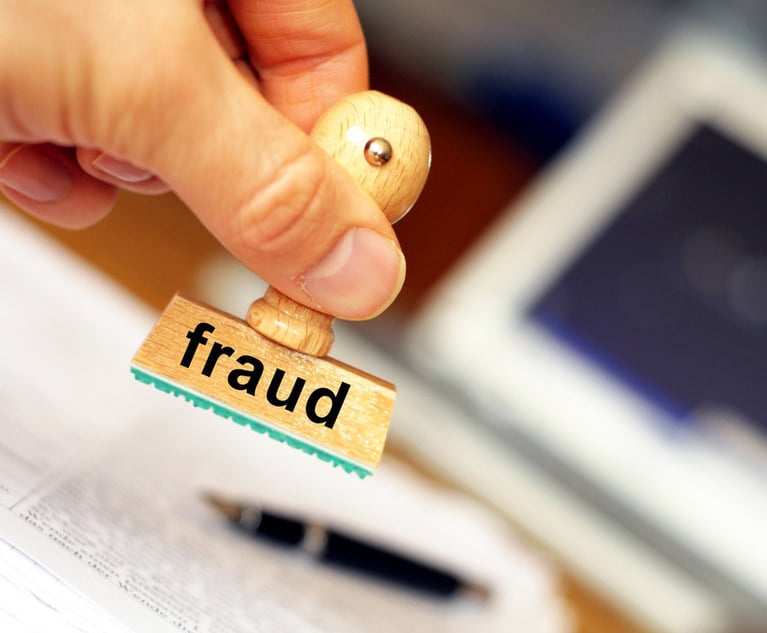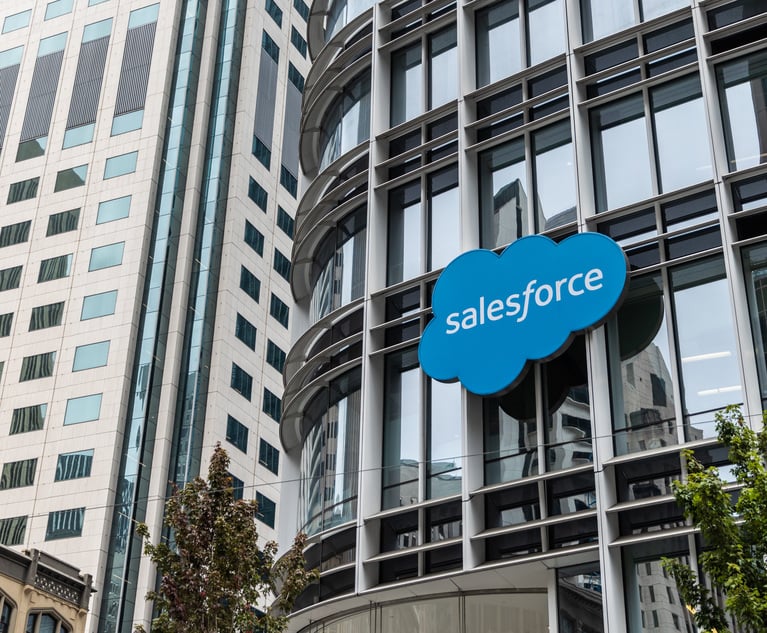 Credit: Nuthawut/Adobe Stock
Credit: Nuthawut/Adobe Stock The DOJ's Whistleblower Pilot Program Adds Incentives for Robust Corporate Compliance Programs
By incentivizing individuals to report misconduct through its Whistleblower Pilot Program, the DOJ has expanded its arsenal and the means by which it can identify misconduct. So wrongdoers beware — although this is not the Old West, everybody loves a good bounty.
September 11, 2024 at 11:06 AM
10 minute read
What You Need to Know
- The Whistleblower Pilot Program will provide monetary awards to whistleblowers who provide the DOJ with original and truthful information about certain types of corporate misconduct that leads to a successful asset forfeiture.
- The Pilot Program's purpose is to fill gaps in the coverage of information that the DOJ has obtained and used for its investigations and prosecutions from already-existing programs.
- Companies should review their compliance programs and internal controls to ensure that their current procedures are sufficient to effectively detect and prevent misconduct.
As Deputy Attorney General (DAG) Lisa Monaco recently observed, "[g]oing back to the days of 'Wanted' posters across the Old West, law enforcement has long offered rewards to coax tipsters out of the woodwork." On Aug. 1, 2024, the Department of Justice (DOJ or Department) joined the club of federal law enforcement agencies that have adapted this approach to white-collar crime by launching its own three-year Whistleblower Pilot Program. The Whistleblower Pilot Program will provide monetary awards to whistleblowers who provide the Department with original and truthful information about certain types of corporate misconduct that leads to a successful asset forfeiture. If the success of other government whistleblower programs, such as the one administered by the Securities and Exchange Commission (SEC), is any measure, the DOJ can be expected to see a surge of reports alleging corruption, money laundering and other corporate fraud. If this is not enough reason for companies to take a fresh look at their compliance programs to ensure they are effective at quickly detecting and remediating misconduct, the DOJ simultaneously amended the Criminal Division's Corporate Enforcement and Voluntary Self-Disclosure Policy (Corporate Enforcement Policy) to allow companies the opportunity for full voluntary self-disclosure benefits even after the DOJ receives a whistleblower tip — so long as the company self-reports that conduct to the DOJ within 120 days of receiving an internal report and before the DOJ contacts the company. While on the one hand, the DOJ is clearly sending a message to employees that if they see something, say something, as DAG Monaco stated to companies in no uncertain terms, "[o]ur message is equally clear: knock on our door before we knock on yours."
As stated in the program guidance, the Whistleblower Pilot Program's purpose is to fill gaps in the coverage of information that the DOJ has obtained and used for its investigations and prosecutions from already-existing whistleblower programs run by agencies like the SEC and the Commodity Futures Trading Commission and from individuals who bring qui tam actions under the False Claims Act (FCA). However, DAG Monaco noted that the legislative jurisdiction of these preexisting whistleblower programs is like a "patchwork quilt that doesn't cover the whole bed. They simple don't address the full range of corporate and financial misconduct that the [DOJ] prosecutes." In order to do so, the DOJ designed the Whistleblower Pilot Program to encourage tips in four areas not covered by other whistleblower programs:
- Certain crimes involving nonregulated financial institutions or their insiders or agents, including schemes involving money laundering, anti-money laundering compliance violations, the registration of money-transmitting businesses and fraud violations;
- Foreign corruption by, through or related to privately held companies, including violations of the Foreign Corrupt Practices Act, the Foreign Extortion Prevention Act (FEPA) and money-laundering statutes;
- Domestic corruption violations involving companies; and
- Healthcare fraud schemes that target private insurers or nonpublic healthcare benefit programs or that defraud patients, investors or nongovernmental entities in the healthcare industry and that are not subject to qui tam recovery under the FCA. Under the program, the DOJ will use the Attorney General's discretionary authority under 28 U.S.C. §524(c) to pay "awards for information or assistance leading to a civil or criminal forfeiture" in these areas of focus.
In order for an individual who reports misconduct in one of these four areas to qualify for an award under the Whistleblower Pilot Program, the individual must meet a number of criteria:
- The information must be truthful, original and complete. A whistleblower's information must be something that the DOJ does not already know. The DOJ defines "original" information as information that is derived from the individual's independent knowledge or independent analysis of information in the individual's possession that is not derived from public sources. The DOJ also considers information original if it materially adds to information that the Department already has in its possession. Notably, while employees are not required to report internally through a company's internal compliance procedures first, those who choose to do so remain eligible to receive an award as long as they also report their information to the Department with 120 days of reporting it internally.
- The information must be given voluntarily. Whistleblowers must offer the information voluntarily. An individual's submission of information will be considered voluntary: i) if it occurs before any formal request, inquiry or demand is directed to the individual; ii) where the individual has no preexisting obligation to the disclose the information; and iii) in the absence of any government investigation or imminent disclosure to the government or the public.
- The individual must not be eligible for an award under another whistleblower program. Individuals can be ineligible for awards under the Whistleblower Pilot Program if they are eligible for an award under another U.S. government whistleblower, qui tam or similar program had they reported the same information.
- The individual must fully cooperate, and the tip must lead to a successful forfeiture. To be eligible for an award, the whistleblower must fully cooperate with the DOJ and the tip must lead to a successful civil or criminal forfeiture exceeding $1 million in net proceeds forfeited to the Department.
- The individual must have clean hands. A whistleblower is ineligible for an award under the Whistleblower Pilot Program if the individual had any meaningful culpability in the criminal activity or had a management role in overseeing the offices or personnel involved in the misconduct.
Regarding compensation, awards can be up to 30% of the first $100 million of a successful forfeiture and 5% of proceeds between $100 million and $500 million. A "successful forfeiture" is when the Department obtains a final order of forfeiture, a civil judgment of forfeiture or an administrative declaration related to assets obtained and those assets are deposited in the Assets Forfeiture Fund. All awards are issued at the sole discretion of the Department. In deciding the amount of the award, the Department considers various factors, including the significance of the information reported, the whistleblower's participation in internal compliance systems by reporting internally first and the whistleblower's cooperation with law enforcement. In the fact sheet published with the announcement of the Whistleblower Pilot Program, the DOJ also noted that if it learns that any person or entity takes any action to prevent a whistleblower from making a report, the DOJ could open a criminal investigation into obstruction of justice.
NOT FOR REPRINT
© 2025 ALM Global, LLC, All Rights Reserved. Request academic re-use from www.copyright.com. All other uses, submit a request to [email protected]. For more information visit Asset & Logo Licensing.
You Might Like
View All
'Everything Leaves a Digital Footprint': How to Navigate the Complexities of Internal Investigations
5 minute read

'Error in Our Case Law': 9th Circuit Overturns False Claims Act First-to-File Precedent

Former Salesforce VP's Whistleblower Retaliation Suit Allowed to Proceed, Judge Rules
4 minute readTrending Stories
- 1'A Death Sentence for TikTok'?: Litigators and Experts Weigh Impact of Potential Ban on Creators and Data Privacy
- 2Bribery Case Against Former Lt. Gov. Brian Benjamin Is Dropped
- 3‘Extremely Disturbing’: AI Firms Face Class Action by ‘Taskers’ Exposed to Traumatic Content
- 4State Appeals Court Revives BraunHagey Lawsuit Alleging $4.2M Unlawful Wire to China
- 5Invoking Trump, AG Bonta Reminds Lawyers of Duties to Noncitizens in Plea Dealing
Who Got The Work
J. Brugh Lower of Gibbons has entered an appearance for industrial equipment supplier Devco Corporation in a pending trademark infringement lawsuit. The suit, accusing the defendant of selling knock-off Graco products, was filed Dec. 18 in New Jersey District Court by Rivkin Radler on behalf of Graco Inc. and Graco Minnesota. The case, assigned to U.S. District Judge Zahid N. Quraishi, is 3:24-cv-11294, Graco Inc. et al v. Devco Corporation.
Who Got The Work
Rebecca Maller-Stein and Kent A. Yalowitz of Arnold & Porter Kaye Scholer have entered their appearances for Hanaco Venture Capital and its executives, Lior Prosor and David Frankel, in a pending securities lawsuit. The action, filed on Dec. 24 in New York Southern District Court by Zell, Aron & Co. on behalf of Goldeneye Advisors, accuses the defendants of negligently and fraudulently managing the plaintiff's $1 million investment. The case, assigned to U.S. District Judge Vernon S. Broderick, is 1:24-cv-09918, Goldeneye Advisors, LLC v. Hanaco Venture Capital, Ltd. et al.
Who Got The Work
Attorneys from A&O Shearman has stepped in as defense counsel for Toronto-Dominion Bank and other defendants in a pending securities class action. The suit, filed Dec. 11 in New York Southern District Court by Bleichmar Fonti & Auld, accuses the defendants of concealing the bank's 'pervasive' deficiencies in regards to its compliance with the Bank Secrecy Act and the quality of its anti-money laundering controls. The case, assigned to U.S. District Judge Arun Subramanian, is 1:24-cv-09445, Gonzalez v. The Toronto-Dominion Bank et al.
Who Got The Work
Crown Castle International, a Pennsylvania company providing shared communications infrastructure, has turned to Luke D. Wolf of Gordon Rees Scully Mansukhani to fend off a pending breach-of-contract lawsuit. The court action, filed Nov. 25 in Michigan Eastern District Court by Hooper Hathaway PC on behalf of The Town Residences LLC, accuses Crown Castle of failing to transfer approximately $30,000 in utility payments from T-Mobile in breach of a roof-top lease and assignment agreement. The case, assigned to U.S. District Judge Susan K. Declercq, is 2:24-cv-13131, The Town Residences LLC v. T-Mobile US, Inc. et al.
Who Got The Work
Wilfred P. Coronato and Daniel M. Schwartz of McCarter & English have stepped in as defense counsel to Electrolux Home Products Inc. in a pending product liability lawsuit. The court action, filed Nov. 26 in New York Eastern District Court by Poulos Lopiccolo PC and Nagel Rice LLP on behalf of David Stern, alleges that the defendant's refrigerators’ drawers and shelving repeatedly break and fall apart within months after purchase. The case, assigned to U.S. District Judge Joan M. Azrack, is 2:24-cv-08204, Stern v. Electrolux Home Products, Inc.
Featured Firms
Law Offices of Gary Martin Hays & Associates, P.C.
(470) 294-1674
Law Offices of Mark E. Salomone
(857) 444-6468
Smith & Hassler
(713) 739-1250








